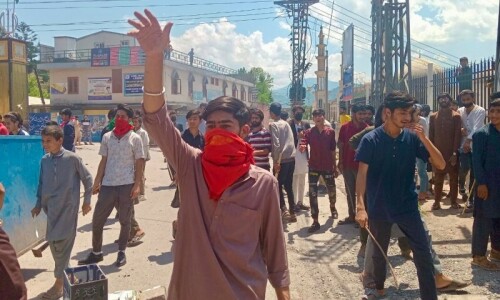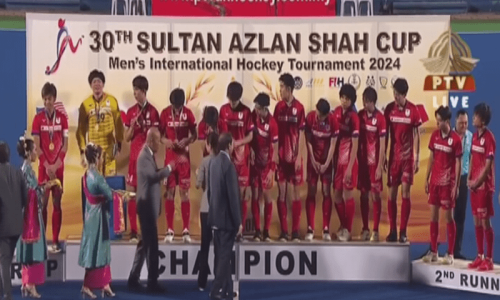ISLAMABAD: Attorney General Irfan Qadir withdrew on Wednesday a reply submitted to the Supreme Court on behalf of the Intelligence Bureau in a case about misappropriation of IB funds in which the government had held that the court could not lay its hands on information relating to internal working of the bureau.
The reply was withdrawn after a three-judge bench headed by Chief Justice Iftikhar Muhammad Chaudhry objected to the contents of the reply signed by the attorney general instead of IB Director General Akhtar Hussain Gorchani.
The bench had taken notice of a report in an English daily alleging that the PPP government had withdrawn Rs270 million to dislodge the Punjab government in 2008-9.
According to the report published on March 14 last year, former IB director general Dr Shoaib Suddle confirmed that money had been withdrawn from the bureau’s secret funds and that when he brought the matter to the notice of former prime minister Yousuf Raza Gilani he kept quiet for political considerations.
The report also accused the PPP government of withdrawing Rs360 million in 1988-90 to buy loyalty of parliamentarians to offset a no-confidence motion, win elections in Azad Kashmir and remove the government in the then NWFP and install Aftab Sherpao as chief minister.
At the last hearing, former IB chief Masood Sharif Khattak submitted a nine-page statement in which he defended former prime minister Benazir Bhutto’s decision to increase secret service funds and then draw it in 1988-90 from the accounts of the civilian intelligence outfit.
Tariq A. Lodhi, another former IB chief during whose tenure Rs270 million was allegedly withdrawn by the PPP government, also submitted a reply but claimed it to be privileged.
On Wednesday the court held that the statement submitted by the attorney general had not been signed by the IB chief and its language was also contemptuous.
The attorney general explained that the IB had sought an opinion from the law ministry before submitting its point of view on the allegations that the money had been withdrawn from the bureau’s funds. The opinion given by the ministry had been reproduced by the IB in the reply, Mr Qadir said.
But the court appeared to be not satisfied with the assertion that the Auditor General Pakistan had already audited the IB accounts and, therefore, the department should be asked to explain if there was any anomaly or misuse of the funds.
Besides, the reply said, Article 175(2) of the Constitution restrained the Supreme Court from interfering in such matters. The article explains that the court has no jurisdiction, except on matters conferred on it by the Constitution or any law.
“Is it a direction being given to the court?” the bench asked. It said the court was deliberately showing respect because the reply had been signed by the attorney general.
When the court was about to dictate its order, the AG said he was withdrawing the reply so that it could be resubmitted by the IB chief himself under his own signatures.
The hearing was adjourned to Thursday.












































Dear visitor, the comments section is undergoing an overhaul and will return soon.